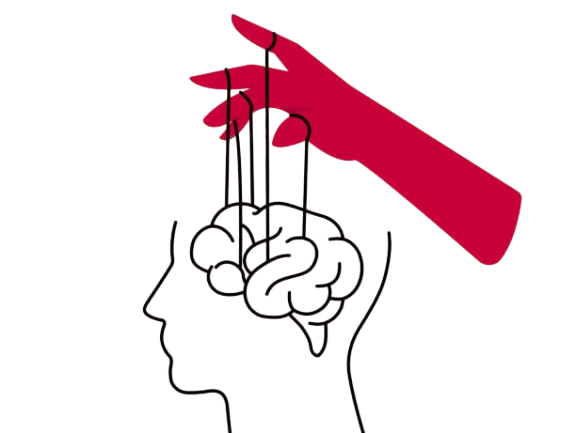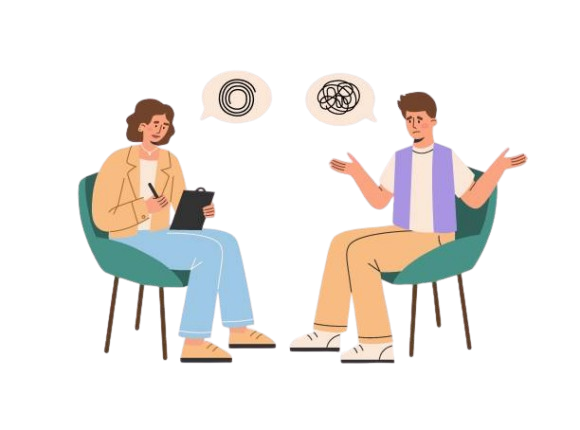Blog
- All Posts

Psychological abuse doesn’t leave visible scars—but its impact runs deep, often altering the very way your brain works. Whether it comes from a partner, parent, boss, or anyone in a position of power, emotional abuse chips away at your sense of reality, safety, and self-worth. The truth is: your brain is physically and chemically affected by chronic psychological abuse. Understanding these changes can help validate your experience, reduce self-blame, and point you toward healing. What Is Psychological Abuse? Psychological (or emotional) abuse involves patterns of manipulation, control, belittling, gaslighting, intimidation, and isolation. Unlike physical abuse, it’s subtle and insidious....

First, if you live with emetophobia, you should be very proud of yourself for clicking on this blog post. I understand how hard it is to interact with any reminder of the possibility of vomiting. We all have fears. Some are common—like spiders or heights. But what if your greatest fear was inevitable? For people with emetophobia, the fear of vomiting isn’t just unpleasant—it’s intrusive, overwhelming, terrifying, and can impair your life in big and small ways. Though it’s one of the lesser-known phobias, emetophobia affects many people and doesn’t discriminate. And yet, because it’s rarely discussed, those who...

The world feels heavy right now. Between global crises, social unrest, political division, economic uncertainty, and climate anxiety—not to mention the personal struggles we carry—many people are feeling overwhelmed, burned out, and emotionally exhausted. If you’ve found yourself thinking, “I can’t take one more thing,” you’re not alone. In times like these, therapy isn’t just about treating mental illness. It’s about building emotional resilience, clarity, and connection when everything else feels uncertain. Why the World Feels So Unsafe Right Now We’re living in what psychologists call a “chronic stress environment“. That means your nervous system is constantly processing unpredictability,...

For many people living with Obsessive-Compulsive Disorder (OCD) treatment can be a long and frustrating journey. Exposure and Response Prevention (ERP) is often considered the gold standard, but it doesn’t work for everyone. Some find it too distressing, others see little improvement. That’s where Inference-Based Cognitive Behavioral Therapy (I-CBT) comes in—a promising and compassionate alternative approach. What Is OCD, Really? OCD is more than just liking things neat, repetitive handwashing, or checking and rechecking the stove. It’s a cycle of intrusive, unwanted thoughts (obsessions) and repetitive actions or mental rituals (compulsions) that are done to reduce the intense anxiety...

Obsessive-Compulsive Disorder (OCD) is often misunderstood. Many people think it’s just about being neat, liking things a certain way, or fear of germs. But OCD is far more complex and varied. It can look very different depending on the person. What Is OCD? OCD is an anxiety disorder characterized by obsessions (intrusive, unwanted thoughts, images, or urges) and compulsions (repetitive behaviors or mental acts performed to reduce the distress caused by obsessions). People with OCD often feel trapped in cycles of fear and ritual, which can severely impact their daily life. Common Types of OCD 1. CONTAMINATION OCD ·...

When people consider starting therapy, one of the first questions they ask is: “Do you take my insurance?” While this is a reasonable question, it may not always lead to the best care or experience. At Indy Mental Health and Wellness, I want to shed light on private pay therapy—what it is, how it compares to using insurance, and why it can be a more empowering and flexible choice for your mental health journey. What Is Private Pay Therapy? Private pay therapy simply means you pay your therapist directly for services, rather than going through your health insurance provider....

When it comes to paying for mental health services, many people don’t realize they can use tax-advantaged accounts like HSAs (Health Savings Accounts) and FSAs (Flexible Spending Accounts). These accounts can make therapy more affordable—even if you’re paying out-of-pocket. At Indy Mental Health and Wellness, I accept both HSA and FSA cards. Here’s what you need to know about how they work, how they’re different, and how to get one—especially if you’re self-employed. What Is an HSA? An HSA (Health Savings Account) is a special savings account that lets you put aside pre-tax money for qualified healthcare expenses—including therapy....

We’ve all heard the phrase, “laughter is the best medicine.” It turns out—it’s not just a saying. Laughter has real, measurable benefits for both your physical and mental health. And in a world that can feel heavy, stressful, and fast-paced, laughter can be a powerful (and often overlooked) wellness tool. At Indy Mental Health and Wellness, we believe healing doesn’t always have to be heavy. Sometimes, it can be lighthearted, playful, and full of joy. Here’s what the science says about how laughter can support your mental health—and how to welcome more of it into your life. What Happens...

Leaving a relationship with a narcissist is rarely simple. Narcissistic abuse is emotionally draining and manipulative, leaving many feeling confused, isolated, and trapped. If you’ve decided it’s time to leave, you’re already taking a courageous step toward reclaiming your life. Why Is Leaving a Narcissist So Hard? Narcissists often use tactics like gaslighting, love bombing, blame-shifting, and isolation to maintain control. This can make you doubt your reality and question your worth. They may seem charming and apologetic between episodes, creating a push-pull dynamic that’s hard to break. Recognizing the abuse and understanding it’s not you is the first...
